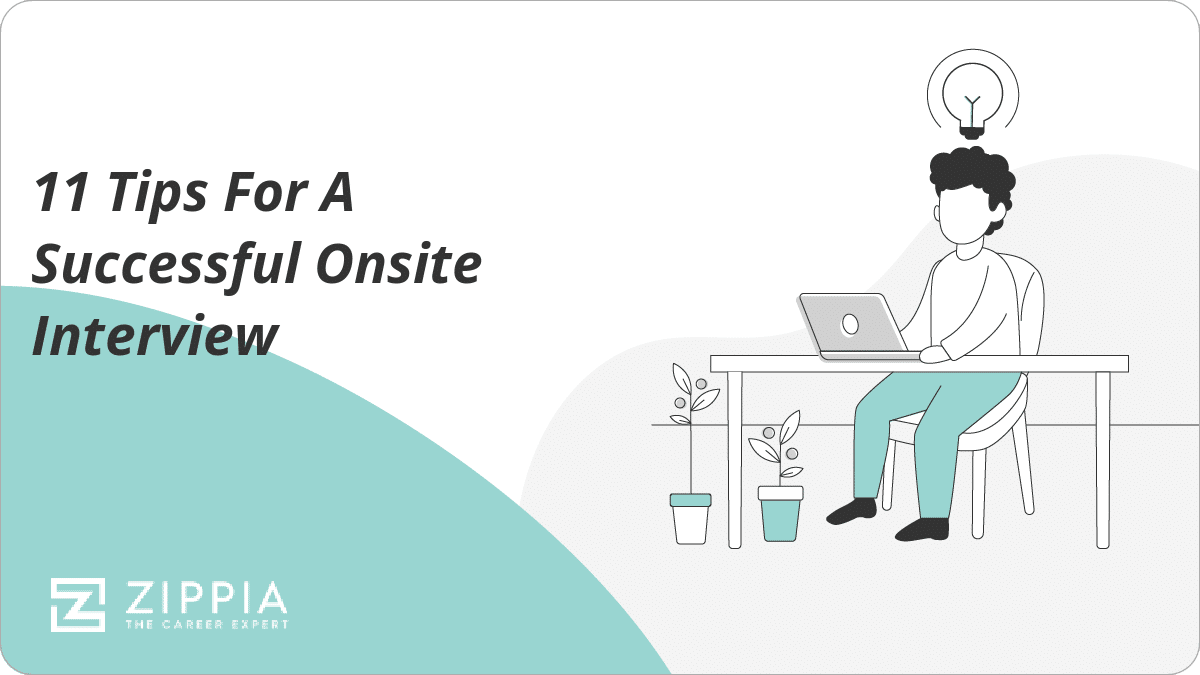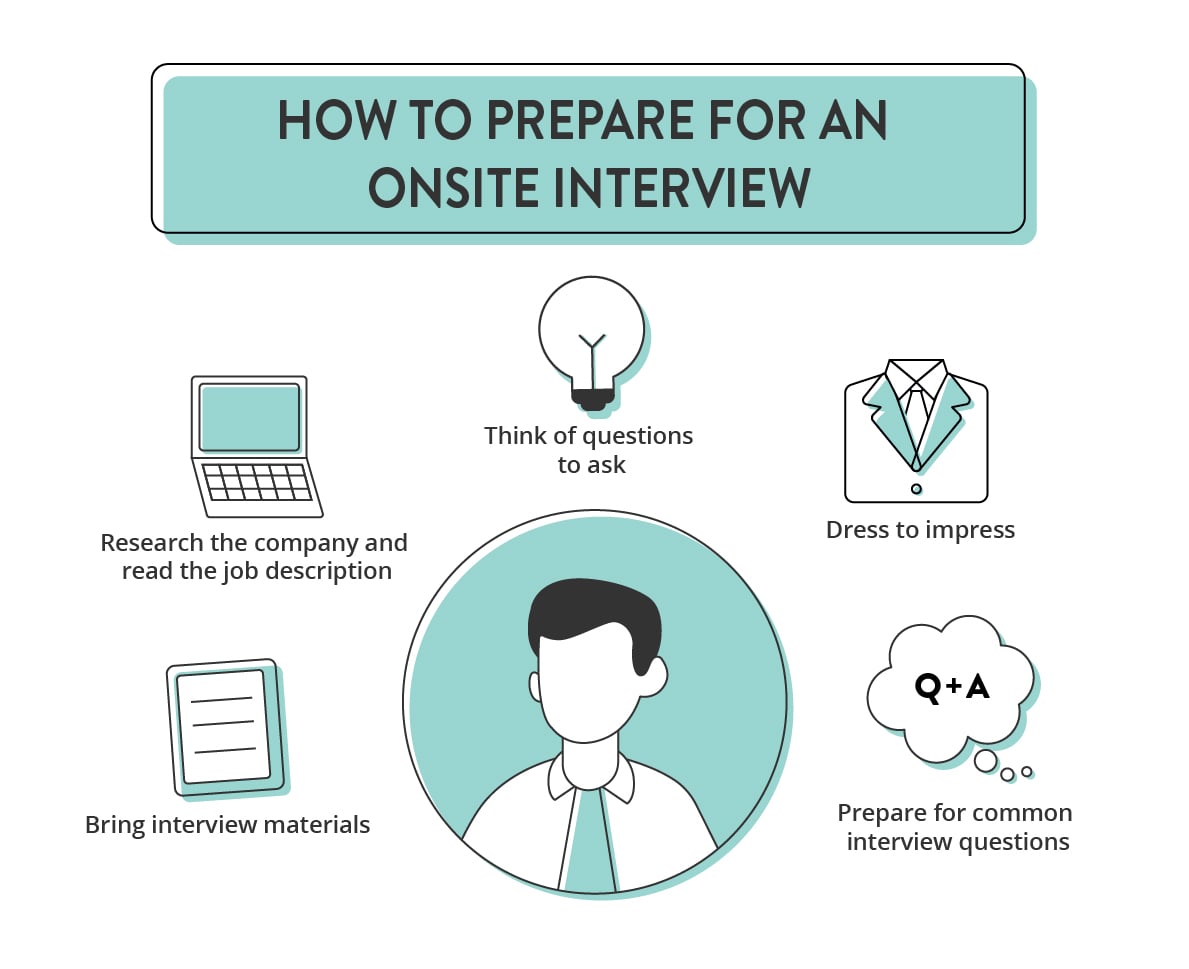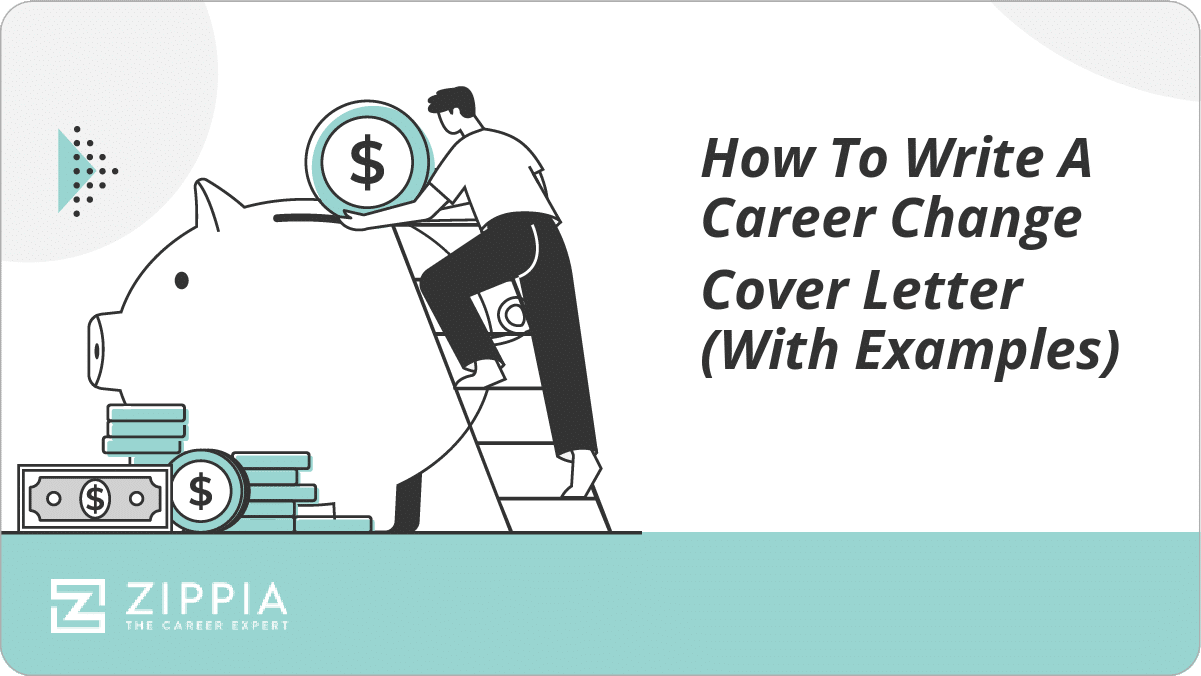- Interview Prep
- Star Method For Answering Questions
- Interview Preparation Checklist
- Star Interview Questions
- Words To Use In An Interview
- Mock Interview Preparation
- How To Make A Good Impression
- Bring Writing Samples
- How To Relax Before An Interview
- Interview Coaching
- Common Video Interview Mistakes
- Common Phone Interview Mistakes
- How To Ace Your Interview For A Remote Job
- Good Weaknesses For A Job Interview
- Good Strengths For A Job Interview
- How To Prepare For A Phone Interview
- Talk About Being Laid Off
- How To Decline An Interview
- How Early Should You Arrive For An Interview
- Interview Etiquette Tips
- Phone Interview Tips
- How To Ace A Phone Interview
- Onsite Interview Tips
- Types Of Interviews
- Open Interviews
- Video Interviews
- Promotion Interview
- Internal Interview
- Informational Interview
- Panel Interview
- Online Interview
- Third Round Interview
- Final Interview
- Skype Interview
- Zoom Interview
- Group Interview
- Interview Questions About Your Experience
- Remote Interview
- Interviews For Teen Jobs
- Lunch Interview
- Panel Interview Tips
- Communication
Find a Job You Really Want In
Getting invited to an onsite interview is an exciting part of the job application process, as you get to meet face-to-face with your potential coworkers and see the company’s offices in person.
Because an onsite interview is one of the most valuable opportunities to convince hiring managers that you’re the person for the job, it’s important to prepare for the meeting thoroughly. In this article, we’ve included a list of tips to help you do this.
Key Takeaways
-
Preparation is key to having a successful onsite interview.
-
Present yourself well through your attitude, dress, and enthusiasm during your onsite interview.
-
Remember that your onsite interview is a chance for you to see if you’d fit well with the company too.
-
Follow up with a thank you note after your interview to solidfy your good impression.

11 Tips for a Successful Onsite Interview
-
Plan Your Travel Arrangements Ahead of Time
Before heading off for your onsite interview, it’s a good idea to plan ahead of time how you’re going to get there. Whether you’re traveling across the country or just driving a town over, it’s best to already have your travel arrangements all figured out.
You may have to deal with airlines, taxis, god-awful traffic, or just an unplanned bump in the road, so you want to give yourself plenty of time to arrive at your employer’s office safely and on time. Showing up to your interview a late, frazzled mess won’t leave a good impression on anyone.
It’s proper interview etiquette to arrive 15 minutes early. This extra time will also give you a moment to review your materials and just take a breath. Use a GPS device to get directions and monitor traffic the day of your interview.
-
Prepare for Common Job Interview Questions
If you thought you had to know a lot about the company for your initial phone interview, it’s time to buckle up. Before you go into your onsite interview, you’ll want to prepare answers to the most common interview questions.
Be prepared with a professional introduction you can use in response to “tell me about yourself.” Get ready for behavioral interview questions and answers by preparing a couple of stories using the STAR method.
You can always expect to hear questions during the interview process like “what are your greatest strengths and weaknesses?” or “what sets you apart from other candidates?” But you should also prepare to answer questions about the company.
-
Learn About the Company and Your Interviewers
It’s not the best idea to walk into an interview without knowing diddly squat about the company. This is a surefire way to make yourself out to be a clueless candidate.
Expect the question “what do you know about our company?” to come up. When researching the company’s background, look specifically for information about:
-
The current CEO and management team
-
The company’s history and growth
-
The mission and core values
-
The products and services they offer
-
Their target audience
-
Their competitors
Before your onsite interview, reach out to your company contact and ask for any available information on the people you’re going to be interviewing with. Make sure you get their names and job titles and learn about their professional accomplishments by doing some casual stalking of the company’s website or their LinkedIn page.
-
-
Read the Job Description
Your strategy for each interview should be tailored to the job posting, so read the job description carefully as you prepare for your interview. Pay special attention to the required qualifications and skills so that you can emphasize those points during the interview.
As an interviewee, it’s important to show the hiring manager or recruiter that you know what the job entails. Showcasing our knowledge involves using the same keywords from the job description. The more examples you can think of that highlight your past capability to handle the job’s responsibilities, the better.
Additionally, if you can have the interviewer address the job’s duties early on in the interview, you can tailor your responses even further based on how they present the role.
-
Dress for Success so You Can Impress
The words “dress,” “success,” and “impress” were put together in hauntingly annoying rhyming phrases for a reason.
If you’re unsure about the dress code, wearing business casual attire is usually a good bet. Or you can call the employer and find out what to wear. Make sure your clothes are wrinkle and stain-free and on the conservative side.
When going to a job interview, you want to dress in professional business attire to give off a good impression and look like you’re at least somewhat qualified for the job — even if you have no idea what you’re doing!
-
Bring All the Necessary Interview Materials
Never show up to a job interview empty-handed. That doesn’t mean you have to show up with flowers and chocolates — this isn’t a date! Bring all of the essential materials you need for an interview — you don’t want to be caught unprepared:
-
Your ID
-
Pens
-
A padfolio with a notepad so you can jot down notes
-
Copies of your resume
-
Examples of your work/your portfolio
-
Business cards
-
A list of references
You should also bring a smile and a cheerful attitude because if you’re all frowny, your interviewers might think you have a bad attitude and get a poor first impression of you.
-
-
Be Prepared With Questions to Ask Your Interviewer
Along with the other materials you should bring to an interview, you don’t want to forget a list of questions for when your interviewer inevitably asks “Do you have any questions for me?”
Doing research into the company before the interview will help you come up with specific questions, but you can always ask questions like
-
“What are the typical challenges for this position?”
-
“Tell me more about your management style.”
-
“What is a typical day look like for someone in this position?”
Easy peasy. Just make sure to leave out questions about salary and benefits. Save those questions for when the company sends you a job offer.
-
-
Get a Good Night’s Rest
It’s hard to make a good impression on potential employers when you’re yawning, rubbing your eyes, or even worse — still wearing your pajamas.
Make sure you get a good night’s sleep the day before your interview. No drinking the night before — you don’t want to show up hungover and complaining of a headache.
During an onsite interview, you might meet with different groups of people, from potential coworkers to managers and supervisors. It’s important to be sharp and focused during every interaction so you can clearly talk about why they should hire you.
-
Be Respectful, Positive, and Enthusiastic
During the interview, always project confidence and enthusiasm. Greet the hiring manager or recruiter by name, smile a lot, and maintain eye contact. Wait to be offered a chair before you sit down to show respect.
Ensure that you always look interested in what’s being said, stay alert, and listen carefully so you can answer appropriately when asked a question. If you feel your energy levels depleting or you’re offered a break, take some time to rehydrate and breathe.
At the end of the interview, show enthusiasm for the role and ask questions about the next steps in the hiring process. Get business cards from everyone you meet, so you can send out thank-you emails after.
-
Avoid the Common Mistakes
There are a few common mistakes you should look out for during your on-site interview:
-
Don’t answer with only “yes” or “no” – most of the time, your interviewer wants a little more information than this, so always aim to answer with at least one full sentence.
-
Don’t talk about salary, benefits, or any other questions that are best left to HR.
-
Don’t say anything negative about your former, current, or potential future employer(s). Positivity reigns supreme during the interview.
-
If you don’t know the answer to a question, don’t try to fake it. Either say you need more time to think about it or ask follow-up questions.
-
Don’t talk too much — interview answers should be relatively short, so don’t ramble on for more than a minute or two, unless the conversation is happening naturally.
-
Don’t repeat your resume and cover letter — the hiring manager or recruiter is looking for new information during the interview. This is your chance to contextualize the content of your resume and cover letter.
-
-
Send a Thank-You Letter After the Interview
Once your onsite interview is (finally) over, it’s time to send out that professional follow-up thank-you letter!
It’s important to send out a note to your interviewer thanking them for their time. Not sending a thank-you letter basically says “I’m an ungrateful jerk who has no manners and was raised by wolves.” Do you want to be that person? No, probably not.
In your follow-up email, you can thank the company and your interviewer for their consideration for the opportunity, as well as ask for information about the next steps in the process and the company’s timetable for filling the position. Sending out a thank-you letter is a great way to get an edge over other applicants.

The Purpose of an Onsite Interview
The purpose of an onsite interview is for both you and the interviewer to learn more about each other so you can both decide if you would be a good fit for the company. The interviewer gets to determine if you would succeed in the position, and you get a firsthand look into the company’s culture and work environment.
An onsite interview is conducive to this becuase it provides the opportunity to meet with multiple people you’d be working with if you get the position, and it allows you to test how you’d fit in with the company culture.
An onsite interview is the time to really show off your strengths, experience, and background knowledge you have of the company. Sometimes an onsite interview happens after an initial phone interview or a meeting at a job fair, and sometimes your resume and qualifications are just that good.
While getting invited to an onsite interview doesn’t necessarily mean you’re a shoo-in for the position, it’s a good sign that you’re being seriously considered — especially if it’s your second or third interview with the company.
Onsite Interview FAQ
-
Does an onsite interview mean you got the job?
No, an onsite interview doesn’t mean you got the job.
It can be a good sign that you’re one of the final candidates if you’re asked to an onsite interview as a second or third interview — especially if the company flies you in from out of state — but it isn’t a guarantee that you’ll get the job.
-
How do onsite interviews work?
Onsite interviews usually work by having you go through a series of meetings at the company’s offices. You may have a full day or even several days of interviews and tours with a variety of people at the company.
This is a great way to get to know the company’s culture and to present yourself and all your skills to your interviewers, but it is exhausting, so take lots of notes so you’ll remember what you learned when you leave.
-
How long is an onsite interview?
An onsite interview is several hours to several days long. If you’re applying to a small, local company, you may be invited out for a short time. Larger companies, however, often invite you to visit them for a day or several days at a time, especially if they’re flying you out for the interview.
Final Thoughts
Onsite or in-person interviews can seem intimidating, but they don’t have to be scary. With a little preparation, you can have all the tools you need to impress any employer you interview with.
Now it’s time to read a little bedtime story about the history of the company, get to bed early, and wake up with enough time to get to your interview 15 minutes ahead of time. Good luck!
Ask the Experts
What’s a common interview question and would you prepare to answer it?

Krista Morris
CEO and PRW
Virtuoso
There is no way to anticipate what the questions will be, so I advise clients to not bother. Instead, they should spend time thinking about what their biggest accomplishments are and bring notes covering a variety of examples (conflict management, exceeding goals, a challenge, etc.). All the candidate needs to do then is find the best example for the question. They will walk in feeling 100% prepared for anything the interviewer throws at them!
What’s a good tip to help prepare for an interview?
Joe Mangum
Promoted Resume
The key to becoming a great interviewer is to be comfortable hearing your own voice. Think about it … once you’ve said something it takes less energy to say it again.The second time you can focus on delivery as opposed to content.
Practicing for a few minutes with another person will make a world of difference. If you don’t have a friend or family member to practice with … try recording your voice on your phone and then listening to it again. Listen to your energy, your clarity, and the way you engage.
You will find that your mind is much more at ease in an interview if you’ve practices hearing your own voice.
- Interview Prep
- Star Method For Answering Questions
- Interview Preparation Checklist
- Star Interview Questions
- Words To Use In An Interview
- Mock Interview Preparation
- How To Make A Good Impression
- Bring Writing Samples
- How To Relax Before An Interview
- Interview Coaching
- Common Video Interview Mistakes
- Common Phone Interview Mistakes
- How To Ace Your Interview For A Remote Job
- Good Weaknesses For A Job Interview
- Good Strengths For A Job Interview
- How To Prepare For A Phone Interview
- Talk About Being Laid Off
- How To Decline An Interview
- How Early Should You Arrive For An Interview
- Interview Etiquette Tips
- Phone Interview Tips
- How To Ace A Phone Interview
- Onsite Interview Tips
- Types Of Interviews
- Open Interviews
- Video Interviews
- Promotion Interview
- Internal Interview
- Informational Interview
- Panel Interview
- Online Interview
- Third Round Interview
- Final Interview
- Skype Interview
- Zoom Interview
- Group Interview
- Interview Questions About Your Experience
- Remote Interview
- Interviews For Teen Jobs
- Lunch Interview
- Panel Interview Tips
- Communication





